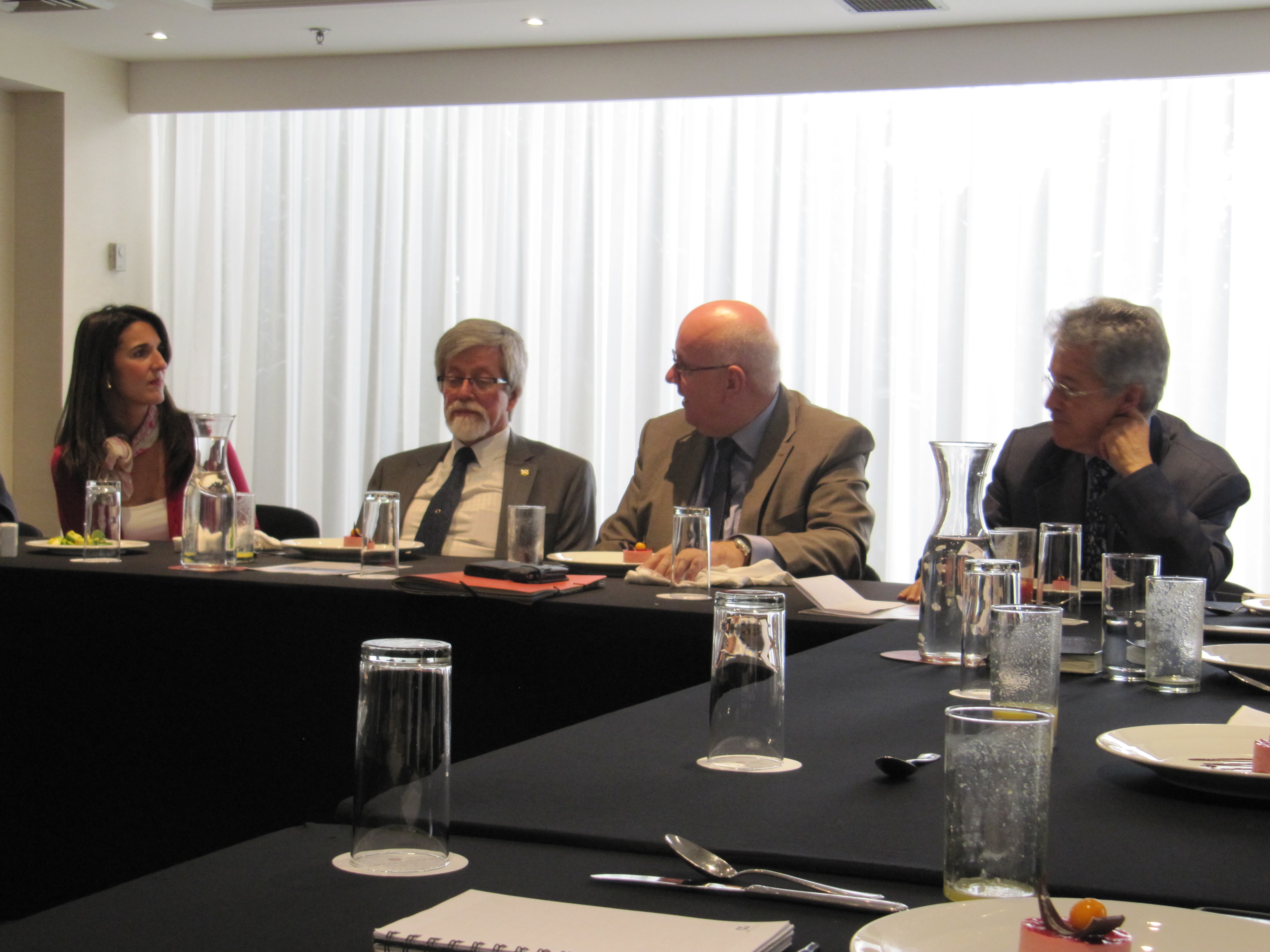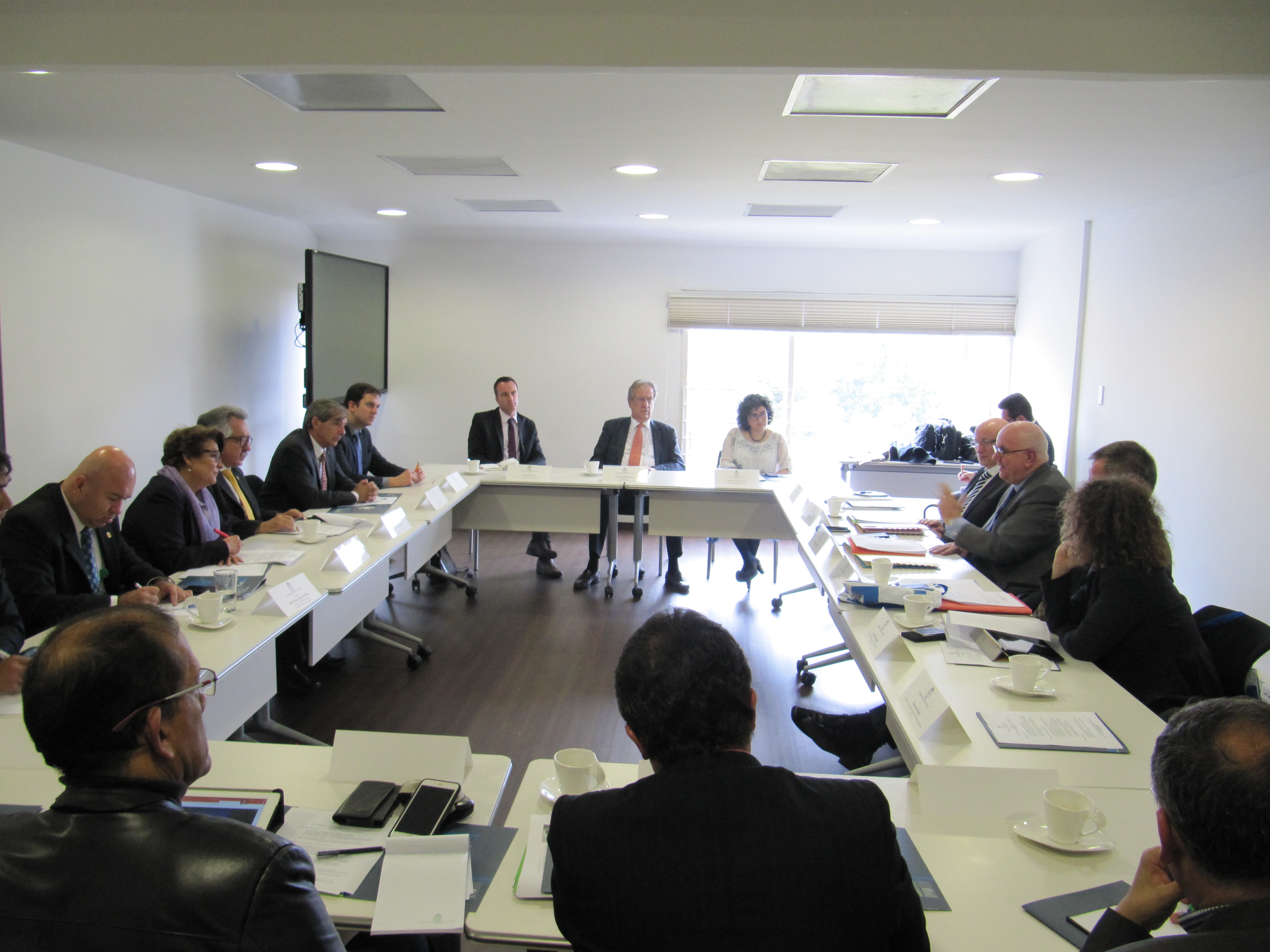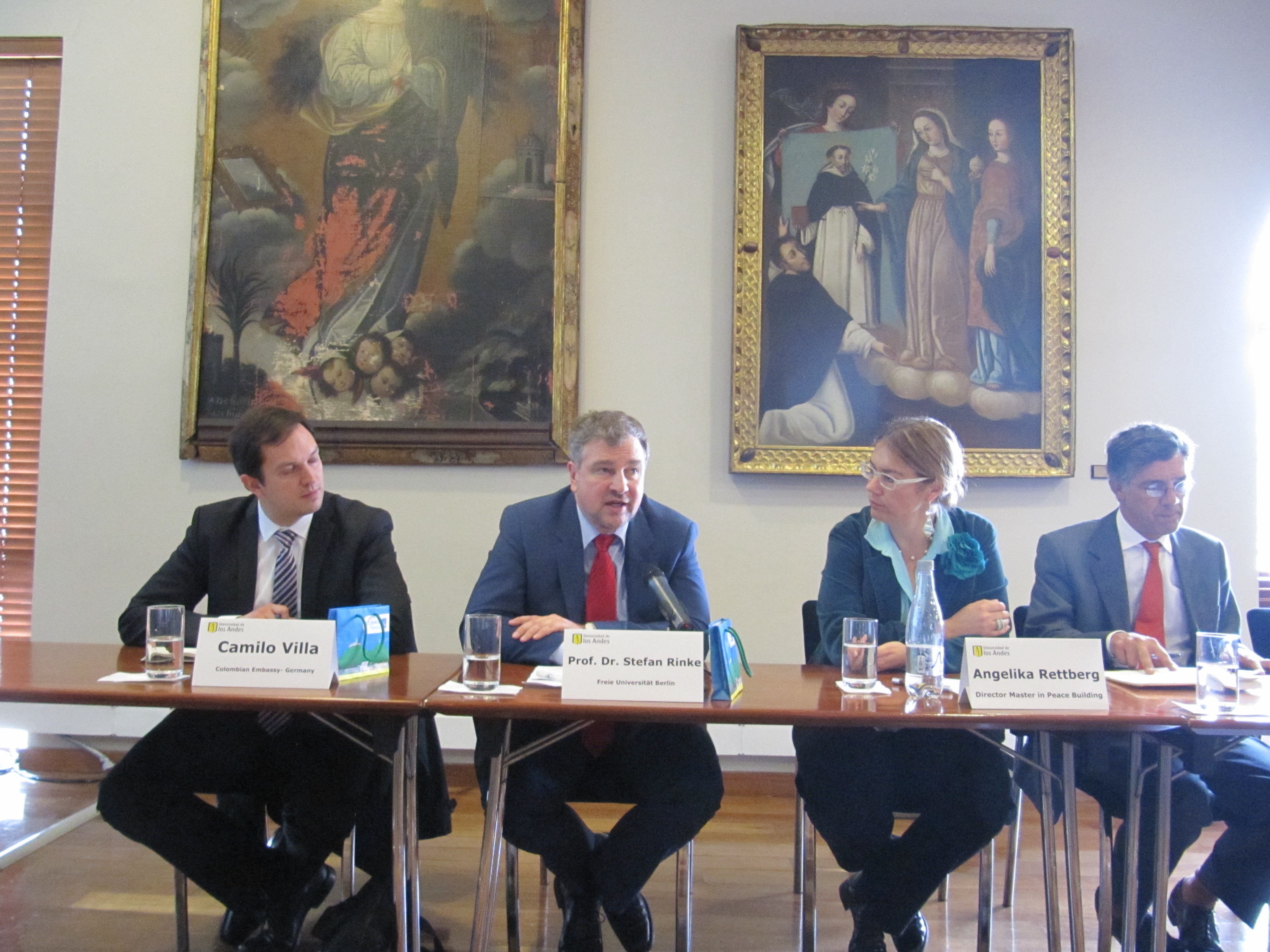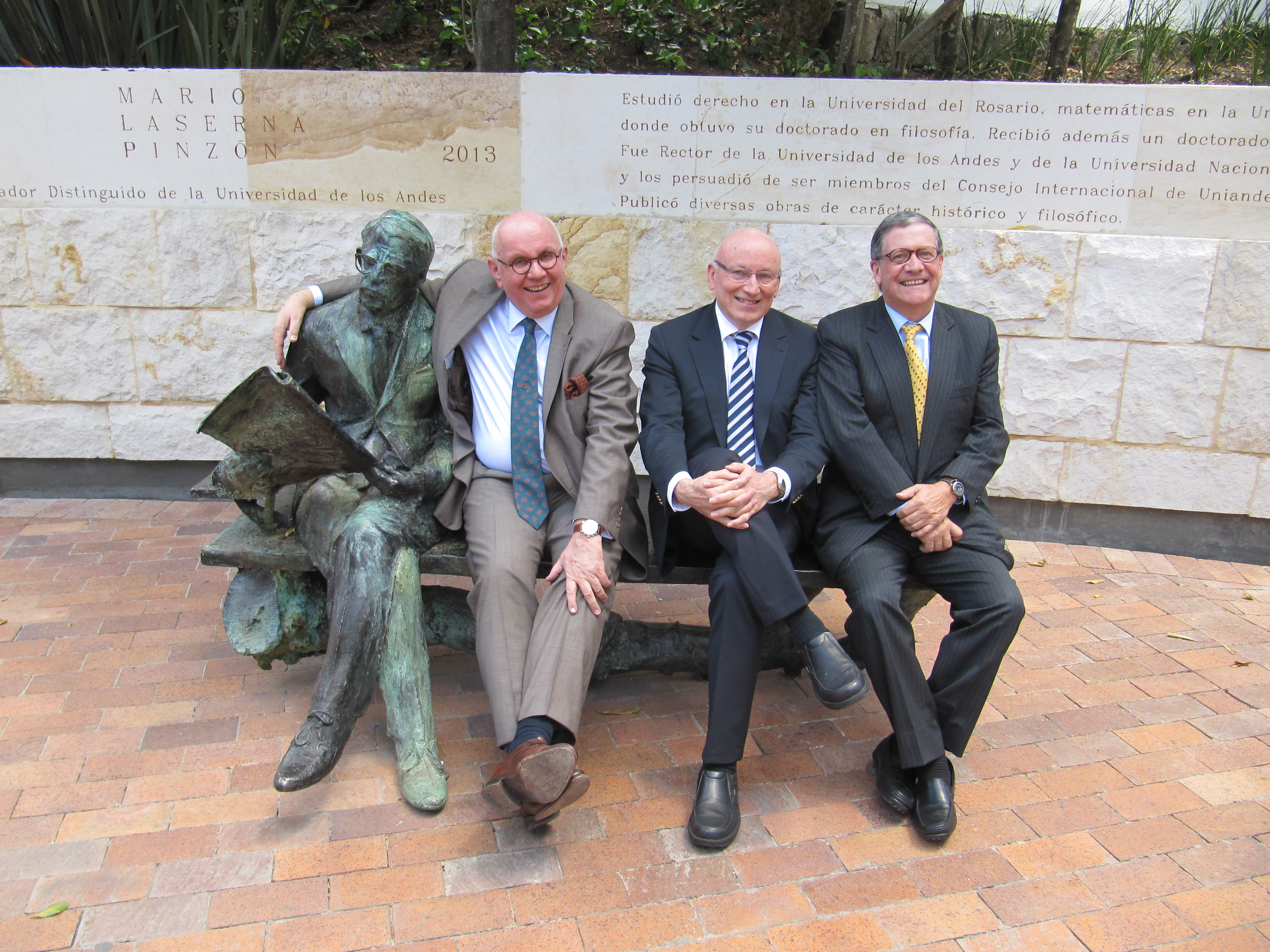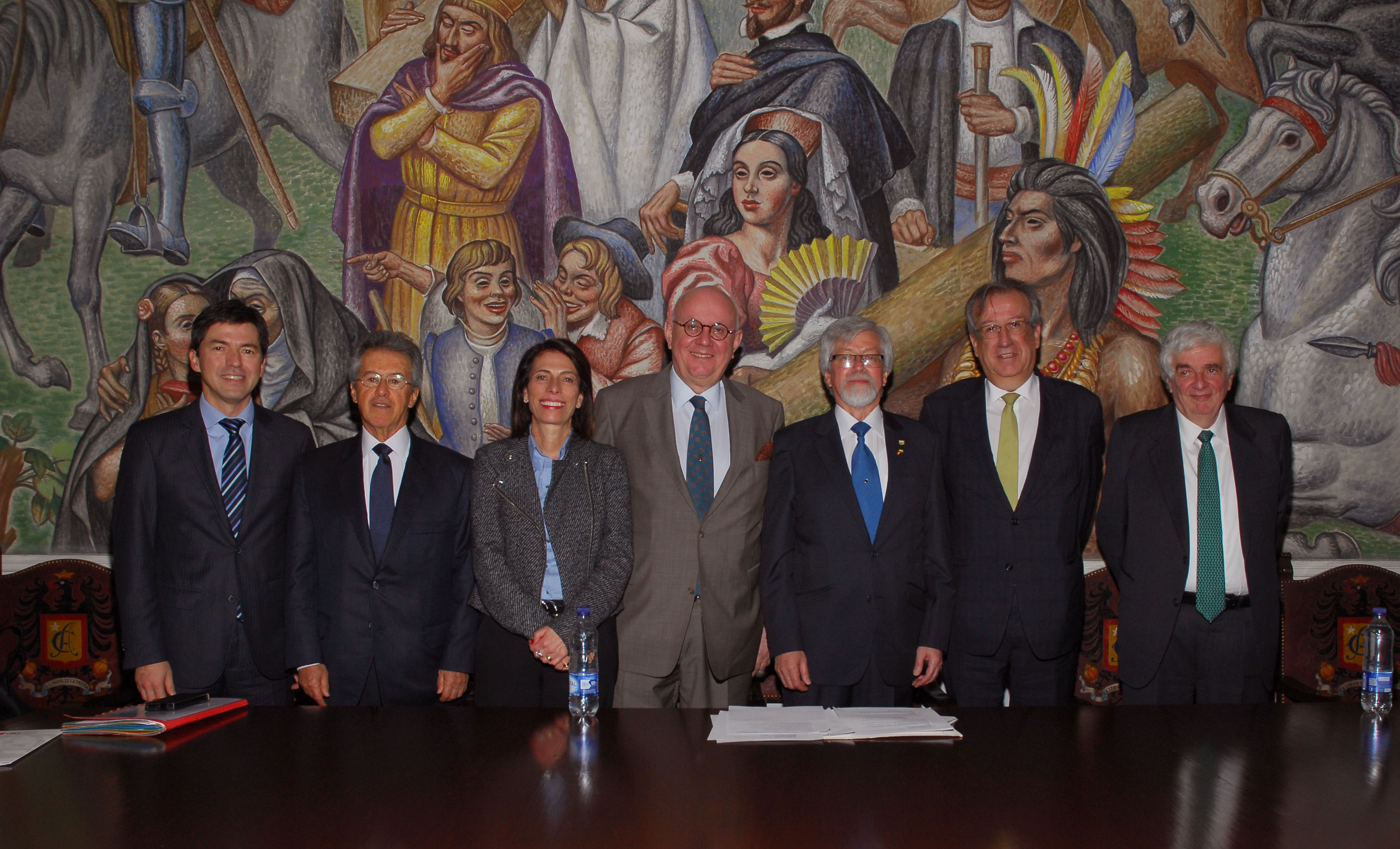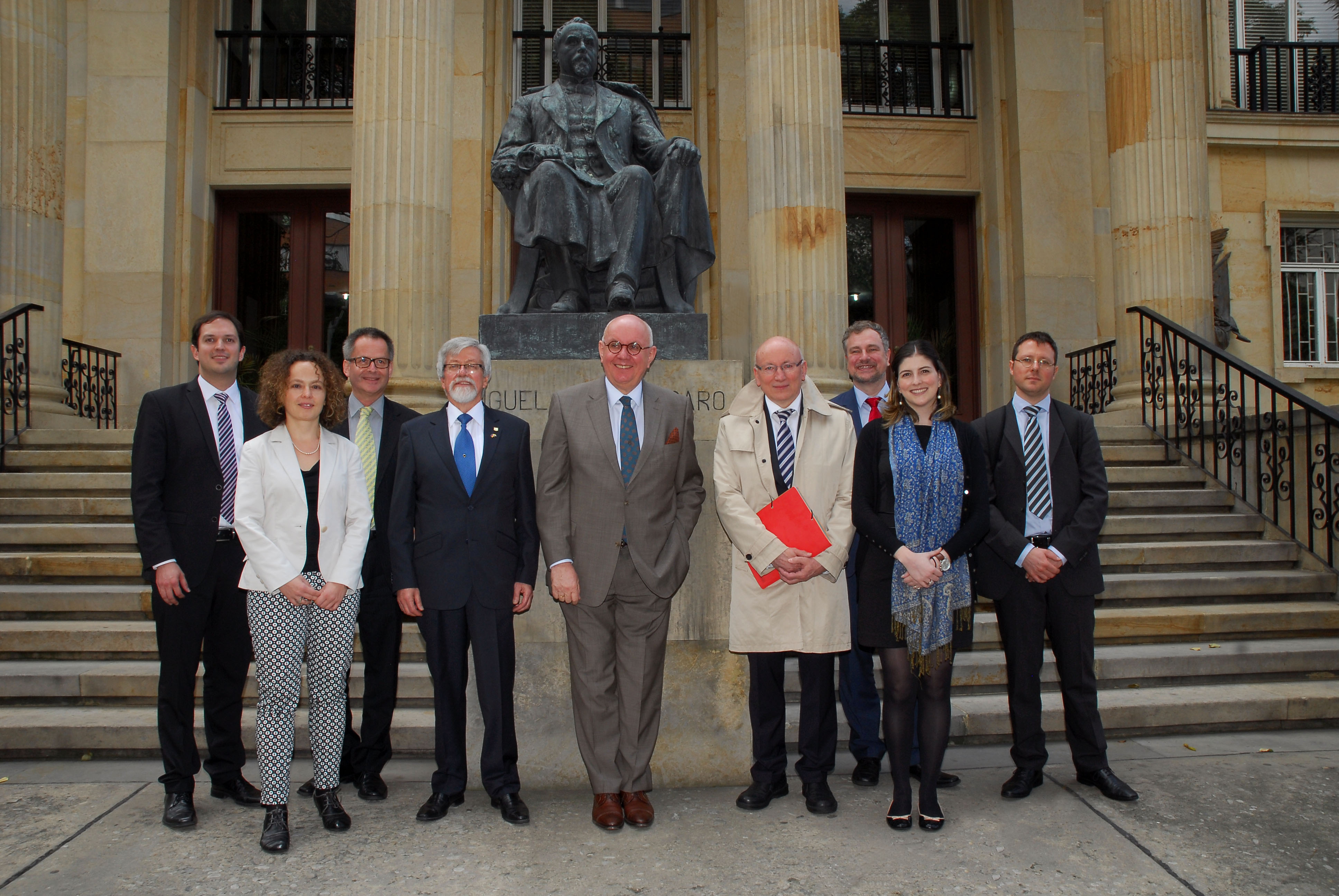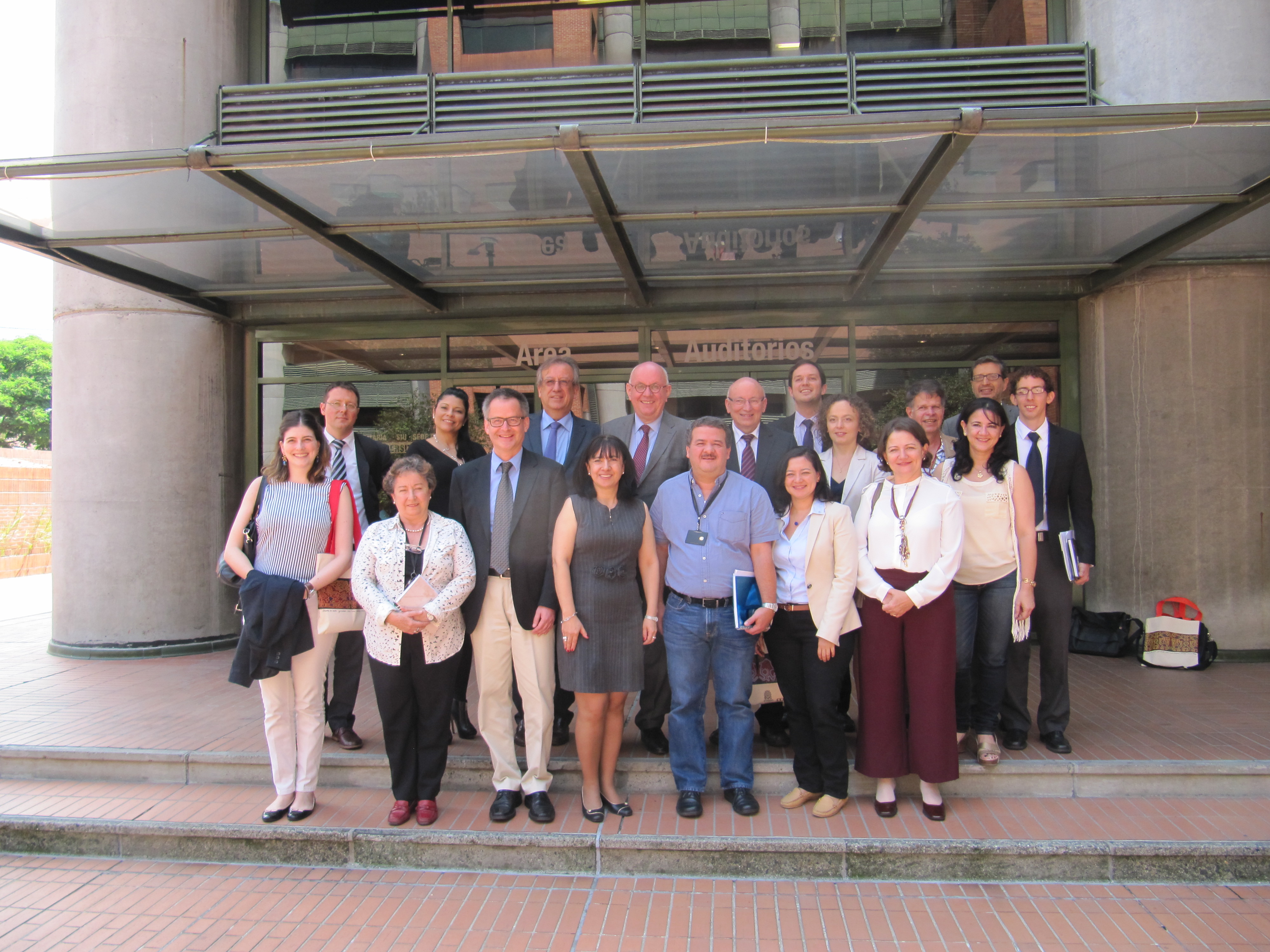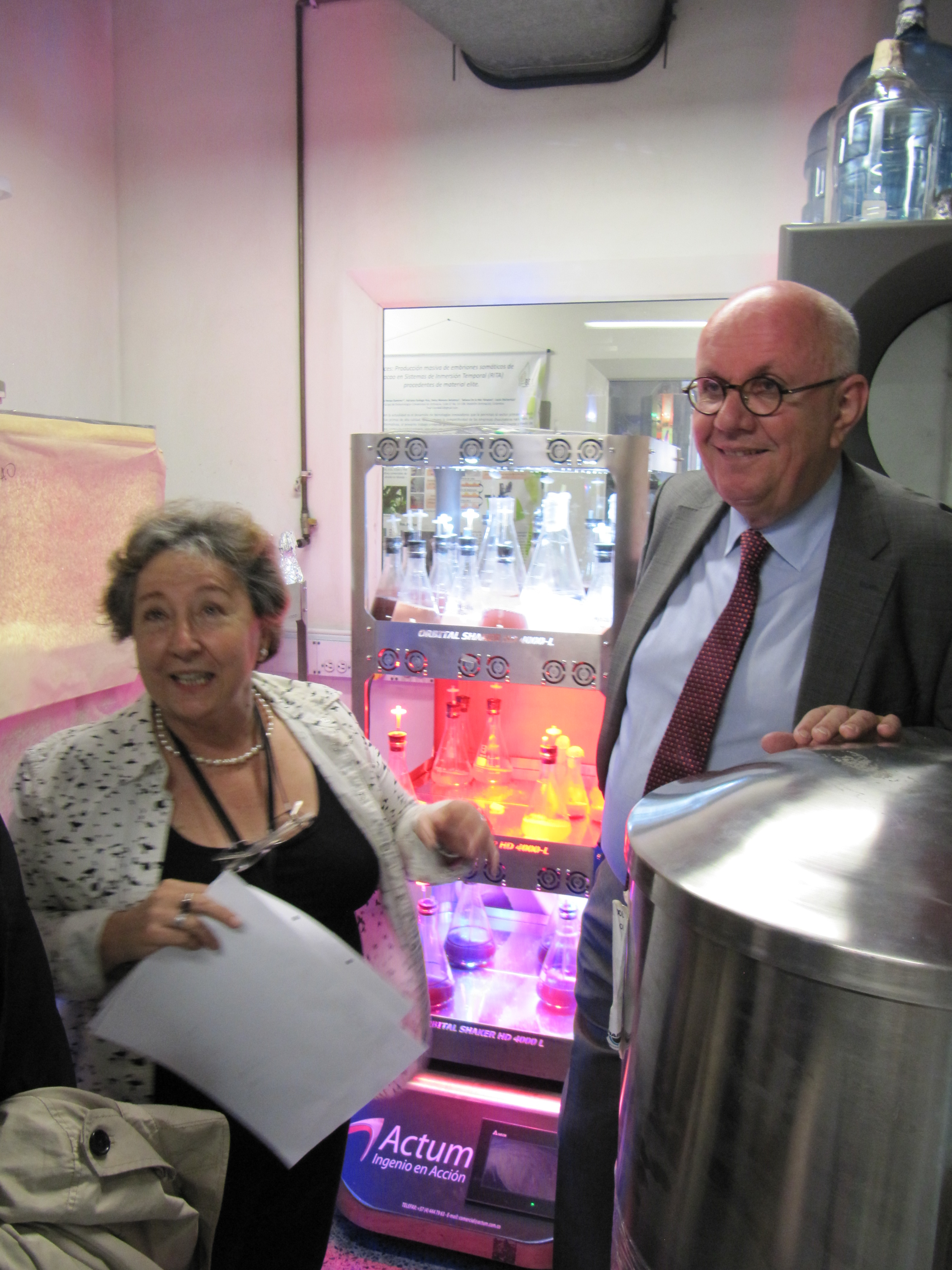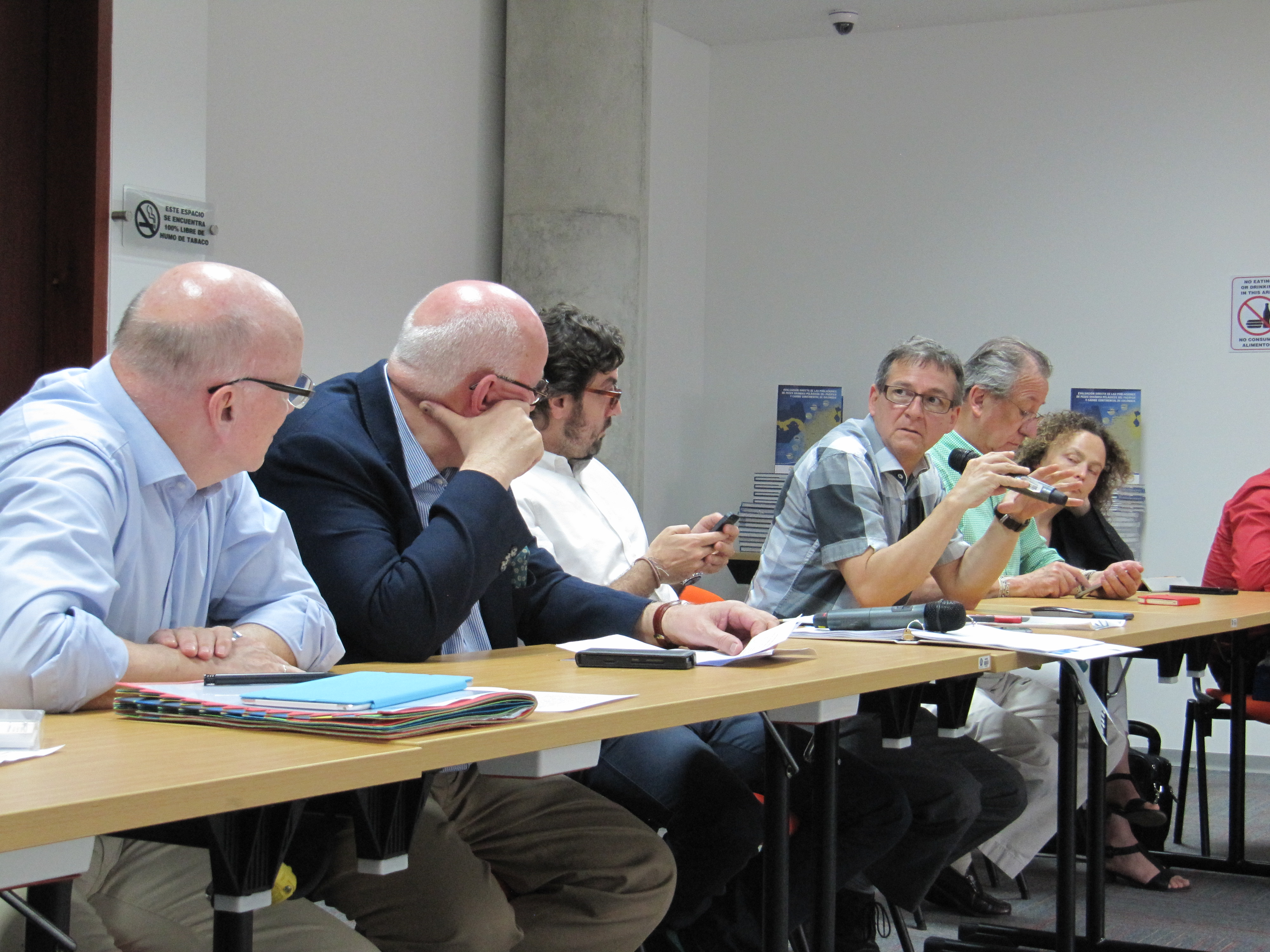DFG President Visits Colombia
Lunch with COLCIENCIAS and decision-makers in the Colombian research system. Left to right: Yaneth Giha, Director of COLCIENCIAS; Prof. Dr. Enrique Forero, President of the Colombian Academy of Sciences; Prof. Dr. Peter Strohschneider, DFG President; and Dr. Jaime Bueno, Advisor to the President of Colombia on Competitiveness, Research and Innovation.
(22.03.16) “The old new and the new new” was the pertinent theme of the trip taken to Colombia by DFG President Professor Peter Strohschneider and DFG Vice President Professor Wolfgang Ertmer. A delegation of six had many opportunities to talk about the research systems in the two countries and to shed light on the similarities and differences between their science policy strategies and priorities in Bogotá, Medellín and Santa Marta. Colombia is an up-and-coming country facing vast social and political transformations, particularly with regard to its peace talks. At the same time, the country’s transition to an innovation-based society is occupying a key role in political discussions.
A highlight of the trip was an event at the Academia de la Lengua where Prof. Strohschneider gave a speech on the importance of knowledge-driven research in establishing and maintaining an innovation-oriented society. “In addition to funding research with direct value creation (the old new), our society’s ability to create innovation is to a large extent characterised by the scientific breakthroughs that take us by surprise and stem from pure scientific curiosity. These insights (the new new) flow into the very latest transformational processes that bring about radical change to the way we think and act as they obviously challenge common assumptions,” Prof. Strohschneider summarised to an audience from the Academia, the ministries and representatives from business associations.
The five-day trip was overseen by H.E. Juan Mayr, Colombian Ambassador to Germany in Berlin. During their travels, the DFG delegation visited important universities and research institutes such as the Universidad Nacional and the Universidad de los Andes, both in Bogotá, and the Universidad de Antioquia in Medellín. Based on the partnerships between the universities, a decision was made to fund collaborations between researchers in the two countries using a range of instruments. A meeting was also held with the Colombian research funding organisation COLCIENCIAS in Bogotá, with which the DFG has co-funded three major projects in electrical engineering since 2015. COLCIENCIAS envisages extending this support to collaborations in other scientific disciplines going forward.
An avid interest in an exchange of science policy objectives and strategies was expressed time and time again at lunches with rectors from universities in each location. During these meetings Prof. Strohschneider very often spoke of the distribution of tasks within the German research system that promotes knowledge-driven research, applied research and strategically motivated research in equal measure. In Santa Marta the delegation had the opportunity to visit INVEMAR, the Marine and Coastal Research Institute, which offers superb preconditions for collaboration between Colombia and Germany.
